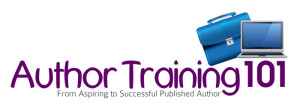 If you take the time to brainstorm spin-offs, additional books ideas related to the one you want to write now, you’ll be amazed what you think of. You’ll soon discover you are not a one-book author. And as a multiple-book author, you’ll have an easier time attracting a publisher or becoming successful as an indie publisher.
If you take the time to brainstorm spin-offs, additional books ideas related to the one you want to write now, you’ll be amazed what you think of. You’ll soon discover you are not a one-book author. And as a multiple-book author, you’ll have an easier time attracting a publisher or becoming successful as an indie publisher.
How to Create Spin-off Ideas
If you currently can’t think of another book you might want to write beyond the one you are working on, try a mind mapping process. Put your book title or subject in the middle of the mind map, and see how many related book topics you might think of. Let you mind go a bit wild. Then create a list of feasible books that all support each other and that create a brand or a series.
Think of other subject areas that interest you. Mind map these. Then find ways to relate them to each other, such as with a central theme running through them all.
Or put yourself in the middle of the mind map. Think of all the different topics you’d like to write about. Think about what it is you “do” or would like to do in a broader sense. Ask yourself questions like:
- Who am I as a writer and a person?
- How do I want to be known?
- How can the books I write support me becoming who I want to be?
- How can they help me fulfill my purpose as a person as well as a writer?
Group your answers by subject matter, and find a theme that would serve as the umbrella for all the topics. Then try to devise a brand for yourself as an author and let the books support your brand.
Let One Book Lead to Another
As you develop your branding and your spin-offs, each new book idea you create ideally should relate to the last. For example, maybe it picks up where the last left off or goes deeper into a concept introduced in an earlier book. You might touch on the concepts you plan to write about in your next book, or you could write each chapter with the idea for expanding it into a separate book later. In this way, one book feeds into another. You want to introduce concepts in your first book that make readers want to purchase your next books but also that make you the expert on that topic or create a name for you in your genre.
The manual you are reading provides a great example of this principle. In my previous book, How to Blog a Book, I introduced the concept of the “proposal process.” I have a chapter that discusses it and shows readers how to use it. This book, which I am blogging on this site (click here to find all the posts), expands on that particular chapter by discussing only that one concept, which I renamed the Author Training Process. Hopefully, people interested in the first book will want to learn more about the process and purchase The Author Training Manual. Also, readers of this book might want to read How to Blog a Book as a way to build platform and write their book at the same time. The two books together enhance my expert status in the area of writing and publishing.
Next Logical Book
If planning two or three spin-off books feels too difficult, or if branding seem too large a concept for you or doesn’t work with the type of writing you want to do, simply keep your current book in mind when completing Step #7. This should be easy since you’ve just finished planning its content. Then think about what one book could logically follow it. This becomes the one spin-off you include in your business plan.
However, if you plan to write a novel you know you will make into a series, in Step #7, you could pitch the next few books in the series. (Or if you don’t plan to write a series, maybe you have one character you could write a book about, like Diana Gabaldon, who is best known for her Outlander series, but who created another series about a character in those books, her Lord John Grey series.) If you plan to write a book for a specific audience, like a book on business tips, you could pitch books for several related niche markets as well, like business for women, for teens or for first-time entrepreneurs. If you plan to write a book for an elementary level audience, you could pitch books for intermediate and advanced audiences, not to mention elementary, middle, high school, or college level readers. A children’s book could be adapted for the young adult market or even for adults (and vice versa). Here are some other ideas:
- Build on the ideas mentioned in your book
- Write a series about a minor character in your novel
- Write nonfiction books about the themes or issues in your novel
- Write a similar nonfiction book directed at a new market
Still having trouble thinking how you might produce spin-offs? Look for authors you know who have written more than one book, or who have also built a business around their books.
Why Become a Multiple Book Author?
Are you a one-book or multiple-book wonder? That’s what agents or acquisitions editors ask themselves when they look at your book proposal—and what you want to ask as you look at your business plan. Publishing professionals tend to be less interested in single-book authors. Agents, in particular, invest a lot of time and energy into clients for little financial reward (15 percent of an advance, which these days could be as little as $2-5,000, and on sales and the average book, if you recall sells only about 250 copies). Assuming you have much better than average sales, the publisher will want to see a second or third book from you to make the initial investment more worthwhile. This is especially true because you could achieve more sales over time and you become better known. Think about this even if you plan to self-publish; the same principles hold true when you publish your own books.
 Note: You can read additional blogged draft excerpts from my new book, The Author Training Manual (Writer’s Digest Books, March 2014) here. Only select pieces from the manuscript, a “working draft,” were posted—not the complete manuscript. Read the next post in the The Author Training Manual blogged-book series by clicking here. Purchase the book on Amazon.com, barnesandnoble.com or at Writersdigestshop.com.
Note: You can read additional blogged draft excerpts from my new book, The Author Training Manual (Writer’s Digest Books, March 2014) here. Only select pieces from the manuscript, a “working draft,” were posted—not the complete manuscript. Read the next post in the The Author Training Manual blogged-book series by clicking here. Purchase the book on Amazon.com, barnesandnoble.com or at Writersdigestshop.com. Lea rn how to create a successful book—one that sells to publishers and to readers—by developing an AUTHOR ATTITUDE and writing a BUSINESS PLAN for a MARKETABLE BOOK. Register for the AUTHOR TRAINING 101 Home-Study Course, and go from aspiring to successful published author! This course is based on The Author Training Manual. If you like what you’ve read here, you’ll love the course.
rn how to create a successful book—one that sells to publishers and to readers—by developing an AUTHOR ATTITUDE and writing a BUSINESS PLAN for a MARKETABLE BOOK. Register for the AUTHOR TRAINING 101 Home-Study Course, and go from aspiring to successful published author! This course is based on The Author Training Manual. If you like what you’ve read here, you’ll love the course.
Photo courtesy of tungphoto | freedigitalphotos.net
Olivia Korringa says
Thank you for the helpful information. I have been trying to figure out how to title my book because although it has a specific use, there are other people it will benefit because of the content. I know about using Tags, but if someone is looking for what the title has to do with, it is a limited audience. What the book contains though, will help multiple audiences.
Thank you.
Olivia Korringa
Nina Amir says
Yes, titles are tough! The right one will come to you, I’m certain.